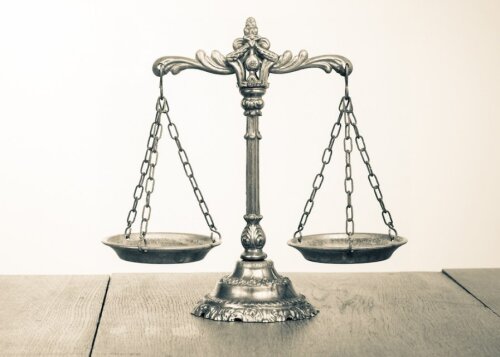Best Criminal Litigation Lawyers in Perm
Share your needs with us, get contacted by law firms.
Free. Takes 2 min.
List of the best lawyers in Perm, Russia
About Criminal Litigation Law in Perm, Russia
Criminal litigation in Perm, Russia means the legal processes that start when someone is suspected or accused of committing a crime and continue through investigation, pre-trial proceedings, trial, appeal, and execution of sentence. The main federal laws that govern criminal cases are the Criminal Code of the Russian Federation and the Criminal Procedure Code of the Russian Federation. In Perm these federal laws are applied by local authorities - investigators, prosecutors, courts, and law-enforcement agencies - and by regional institutions such as the Prosecutor's Office of Perm Krai and the regional branch of the Investigative Committee. Courts handling criminal matters include magistrate courts for minor offenses, district courts for more serious crimes, and the Perm Krai Court for appeals and oversight.
Why You May Need a Lawyer
Facing criminal allegations, police questioning, searches, or detention are stressful events with potentially severe consequences. A lawyer skilled in criminal litigation helps protect your rights, advises on legal strategy, represents you during interrogation and in court, negotiates plea agreements when appropriate, and works to secure the best possible outcome. Common situations that require legal assistance include arrest or detention, being summoned for questioning, receiving a charge or indictment, serving as a witness where there is risk of being implicated, investigations involving searches and seizures, accusations of violent or white-collar crimes, post-conviction appeals, and complaints about police or investigator misconduct.
Local Laws Overview
Key legal features to keep in mind in Perm are driven by federal statutes but implemented locally:
- Rights on detention and interrogation - A suspect has the right to legal counsel, the right to be informed of the charges, the right to remain silent, and the right to medical and consular assistance if applicable. Police may detain a person for a short period for immediate processing, but extension of detention beyond initial periods requires court approval.
- Pre-trial measures - Investigators and courts can apply measures of restraint such as bail, travel restrictions, house arrest, and pre-trial detention. Decisions on custody are made by district courts and can be appealed.
- Evidence and procedure - The Criminal Procedure Code sets strict rules on evidence collection, admissibility, expert examinations, searches, and seizure. Violations of procedure can be grounds to challenge evidence.
- Plea agreements - The Russian legal system allows for negotiated resolutions in many cases through plea agreements or agreements on the recognition of guilt. These procedures have formal requirements and are subject to court approval.
- Legal aid - There is a system of state-guaranteed legal aid for certain categories of people, including those detained, minors, and low-income citizens. The regional advocate chamber coordinates practicing lawyers and certification for defense counsel.
Frequently Asked Questions
What should I do immediately if police come to my home or workplace?
Stay calm and ask to see the officer identification. You can ask the purpose of the visit. You have the right to refuse entry unless police present a court order or are acting to detain you. Do not resist physical entry by law enforcement. Clearly state that you want to speak with a lawyer and avoid giving detailed statements without a lawyer present. Make note of the officers' names and badge numbers and any documents they provide.
Can I be held without charge and for how long?
Under Russian procedure a person may be detained for a limited initial period for identification and immediate procedures. For longer pre-trial detention an investigator must seek a court order. The precise time limits and possible extensions depend on the charge and case complexity. If you are detained beyond allowed periods, a lawyer can file complaints with the court or prosecutor to challenge unlawful detention.
Do I have the right to a lawyer during interrogation?
Yes. A suspect and accused person has the right to legal assistance during questioning and at all critical stages of the criminal process. If you are detained and cannot pay for a lawyer, the state can provide a defender for qualified categories of persons. It is normally advisable to request a lawyer as soon as possible and to avoid answering detailed questions without counsel present.
What is the difference between being a witness and being a suspect?
As a witness you are expected to provide factual information; you can be compelled to testify but you also have protections and, in some cases, the right to refuse if answers could incriminate you. As a suspect or accused you face potential criminal liability and have stronger rights to defense, including the right to silence, the right to a lawyer, and procedural safeguards. Misunderstanding the distinction can be risky, so consult a lawyer if there is any chance your testimony could implicate you.
How does plea bargaining work in Russia?
Plea bargaining is a formal procedure where the accused agrees to plead guilty in exchange for a lighter sentence or other concessions. The agreement must meet legal formalities, include a clear record of the accused's informed consent, and be approved by the court. A defense lawyer can advise whether a plea agreement is beneficial and negotiate terms with the investigator or prosecutor.
Can evidence gathered during a search be excluded?
Yes. Evidence obtained in violation of procedural rules - for example, without a valid search warrant when one is required, or in breach of the suspect's rights - may be challenged and potentially excluded. A lawyer can review how a search was conducted, gather facts, file motions to suppress unlawfully obtained evidence, and raise complaints with supervisory bodies if appropriate.
If I cannot afford a lawyer, how can I get free legal assistance?
Russia provides state-guaranteed legal aid for certain groups such as detainees, minors, the disabled, and people below a specified income threshold. You can request a state-appointed lawyer through the court, police station, or prosecutor's office handling the case. Regional legal aid offices and the Advocate Chamber of Perm Krai can provide information about eligibility and available free legal services.
How do I challenge a wrongful arrest or police misconduct?
Start by documenting everything - names, dates, times, and copies of any paperwork. File a written complaint with the police department, the prosecutor's office, or the regional branch of the Investigative Committee. A lawyer can help draft the complaint, advise on additional administrative or civil claims, and represent you in proceedings to obtain investigations into misconduct and any compensation for unlawful actions.
What are the main stages of a criminal case I should expect?
Typical stages are: pre-trial investigation led by an investigator; decision to charge; pre-trial measures and possible remand; court proceedings including first instance trial; verdict and sentencing; and appellate or supervisory review. Post-conviction processes include appeals, cassation, and supervisory review, and enforcement of the sentence. A lawyer will explain the expected timeline and key steps in your specific case.
How do I find a reputable criminal defense lawyer in Perm?
Look for lawyers with relevant criminal litigation experience, good standing with the regional advocate chamber, and references or court experience in similar cases. You can contact the Advocate Chamber of Perm Krai for a directory of licensed advocates, seek recommendations from trusted sources, or use court legal aid centers and regional legal clinics to find initial counsel. Arrange a consultation to discuss fees, strategy, and experience before engagement.
Additional Resources
For people seeking help in Perm, useful local bodies and organizations include the regional Prosecutor's Office of Perm Krai, the regional branch of the Investigative Committee of the Russian Federation, the Advocate Chamber or Bar Association of Perm Krai, the Perm Krai Court and district courts, and the regional office of the Ministry of Internal Affairs. The Commissioner for Human Rights in Perm Krai and local legal aid centers provide complaint mechanisms and assistance. Universities and legal clinics in Perm may offer free consultations or referrals for low-income residents. State legal aid offices at courts can explain eligibility for a state-appointed defender.
Next Steps
If you need legal assistance in a criminal matter in Perm, take these practical steps:
- Preserve facts - write down what happened, keep documents, record names and times, and preserve physical evidence if safe to do so.
- Request a lawyer - explicitly state you want legal counsel at any police interaction or interrogation and exercise your right to silence until counsel arrives.
- Contact qualified counsel - reach out to a criminal defense lawyer with experience in the regional courts or contact the Advocate Chamber of Perm Krai for a list of licensed advocates.
- Use official complaint channels - if you believe your rights were violated, file written complaints with the prosecutor's office or the Investigative Committee and keep copies.
- Prepare for the process - gather identity documents, records, witness contacts, and any paperwork related to the case for your lawyer to review.
Early legal advice improves outcomes. Even if charges seem minor, consult a lawyer promptly to protect your rights and to shape the best defense strategy for your situation.
Lawzana helps you find the best lawyers and law firms in Perm through a curated and pre-screened list of qualified legal professionals. Our platform offers rankings and detailed profiles of attorneys and law firms, allowing you to compare based on practice areas, including Criminal Litigation, experience, and client feedback.
Each profile includes a description of the firm's areas of practice, client reviews, team members and partners, year of establishment, spoken languages, office locations, contact information, social media presence, and any published articles or resources. Most firms on our platform speak English and are experienced in both local and international legal matters.
Get a quote from top-rated law firms in Perm, Russia — quickly, securely, and without unnecessary hassle.
Disclaimer:
The information provided on this page is for general informational purposes only and does not constitute legal advice. While we strive to ensure the accuracy and relevance of the content, legal information may change over time, and interpretations of the law can vary. You should always consult with a qualified legal professional for advice specific to your situation.
We disclaim all liability for actions taken or not taken based on the content of this page. If you believe any information is incorrect or outdated, please contact us, and we will review and update it where appropriate.










